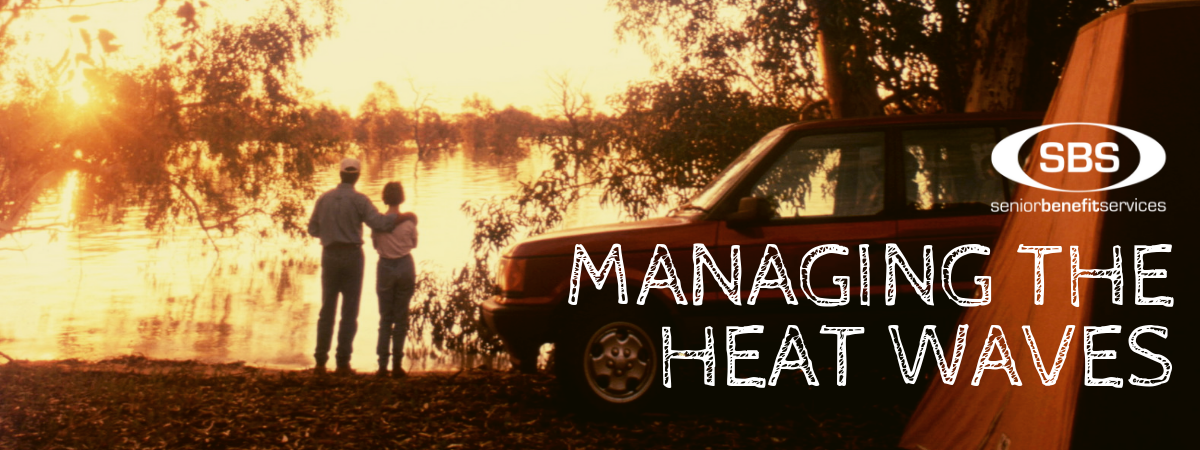
“In recent years, excessive heat has caused more deaths than all other weather events, including floods.”
* Excessive Heat Watch – Conditions are favorable for an excessive heat event to meet or exceed local Excessive Heat Warning criteria in the next 24 to 72 hours.
*Heat Advisory – Heat Index values are forecasting to meet locally defined advisory criteria for 1 to 2 days (daytime highs= 100-105° Fahrenheit).
* Excessive Heat Warning – Heat Index values are forecasting to meet or exceed locally defined warning criteria for at least 2 days (daytime highs= 105-110° Fahrenheit).
Source: https://www.redcross.org/get-help/how-to-prepare-for-emergencies/types-of-emergencies/heat-wave-safety.html
Things you try and do during excessive heat:
⫸ Wear lots of SUNSCREEN, and drink even more WATER!
⫸ Opt for light / loose fitting clothing that is light in color (avoid blacks, dark grays, etc.)
⫸ Use a hat to protect your face from the sun rays.
⫸ Stay indoors as much as possible. If you have to be outdoors, find a shaded section.
⫸ Close your curtains / blinds to keep the sunshine out (will also help with cooling costs).
⫸ SLOW DOWN… Use the heat as an excuse to binge your favorite show!
⫸ Check on outdoor animals frequently (if you’re able to, bring them indoors).
⫸ Use a “buddy system” to check on friends / family… especially if you know they don’t have air conditioning. You can even invite them over if possible.
⫸ If you personally don’t have air conditioning, utilize your local coffee shops, stores, or cafes for the afternoon. There are also shelters that offer this.
⫸ Take advantage of the early morning hours or late evening hours (when it cools down) to do workouts, tend to your garden, mow the lawn, etc.
⫸ Let your car cool off for a bit before hopping inside.
Things you should avoid during excessive heat:
⫸ Using the the stove or oven to cook, it can heat up your house quickly. Opt for salads, fruits, sandwiches, etc!
⫸ Eating large meals in general.
⫸ Leaving pets / small children / elderly adults alone in an enclosed car.
⫸ Drinking a large amount of alcoholic beverages.
And Contrary to popular belief, you should also avoid…
⫸ Taking a cold shower to cool off
“A cold shower to “cool off” might seem a good immediate choice. We feel cooler because of the combination of the cold water and the decreased blood flow to the skin, but in fact our core will get warmer because of reduced heat loss from the body without skin blood flow. Some minutes later, we feel hot again. But a warm sensation on the skin will lead to increased blood flow to the skin, increasing heat loss from the body. So, keeping cool in summer will be more effective with a warm shower (water temperature about 33⁰C or 91.4⁰F) rather than a cold shower (water temperature 20-25⁰C or 77⁰F). It will seem warm initially but after a few minutes will provide better comfort in the long term.”
Source: http://theconversation.com/health-check-do-cold-showers-cool-you-down-71004
⫸ Drinking an ice cold water to cool off (opt for room temp, instead!)
“Experts claim that chilled water and even cold beverages contract your blood vessels, thereby restricting digestion. It also hinders the natural process of absorbing nutrients during digestion. The body’s focus is diverted from digestion as it tries to regulate your body temperature and that of the water, which can actually cause water loss and make you feel dehydrated. The normal temperature of the body is 37 degree C, and when you consume something of a very low temperature, your body compensates by spending energy to regulate this temperature.”
“They also say that doing this can cause a sore throat, inhibits the breakdown of fats, decreases heart rate, and can cause your body go into shock.”
First Aid for Heat-Related Illnesses:
⫸ Sunburn (Skin redness and pain, possible swelling, blisters, fever, headaches) – Take a shower using soap to remove oils that may block pores, preventing the body from cooling naturally. – Apply dry, sterile dressings to any blisters, and get medical attention.
⫸ Heat Cramps (Painful spasms, usually in leg and abdominal muscles; heavy sweating) – Get the victim to a cooler location. – Lightly stretch and gently massage affected muscles to relieve spasms. – Give sips of up to a half glass of cool water every 15 minutes. (Do not give liquids with caffeine or alcohol.) – Discontinue liquids, if victim is nauseated.
⫸ Heat Exhaustion (Heavy sweating but skin may be cool, pale, or flushed. Weak pulse. Normal body temperature is possible, but temperature will likely rise. Fainting or dizziness, nausea, vomiting, exhaustion, and headaches are possible.) – Get victim to lie down in a cool place. – Loosen or remove clothing. – Apply cool, wet clothes. – Fan or move victim to air-conditioned place. – Give sips of water if victim is conscious. – Be sure water is consumed slowly. – Give half glass of cool water every 15 minutes. – Discontinue water if victim is nauseated. – Seek immediate medical attention if vomiting occurs.
⫸ Heat Stroke – a sever medical emergency (High body temperature (105+); hot, red, dry skin; rapid, weak pulse; and rapid shallow breathing. Victim will probably not sweat unless victim was sweating from recent strenuous activity. Possible unconsciousness.) – Call 9-1-1 or emergency medical services, or get the victim to a hospital immediately. Delay can be fatal. – Move victim to a cooler environment. – Removing clothing – Try a cool bath, sponging, or wet sheet to reduce body temperature.- Watch for breathing problems. – Use extreme caution. – Use fans and air conditioners.
Source: https://www.wunderground.com/prepare/extreme-heat
We hope this has been helpful! Enjoy your summer and stay COOL!
-Team SBS
